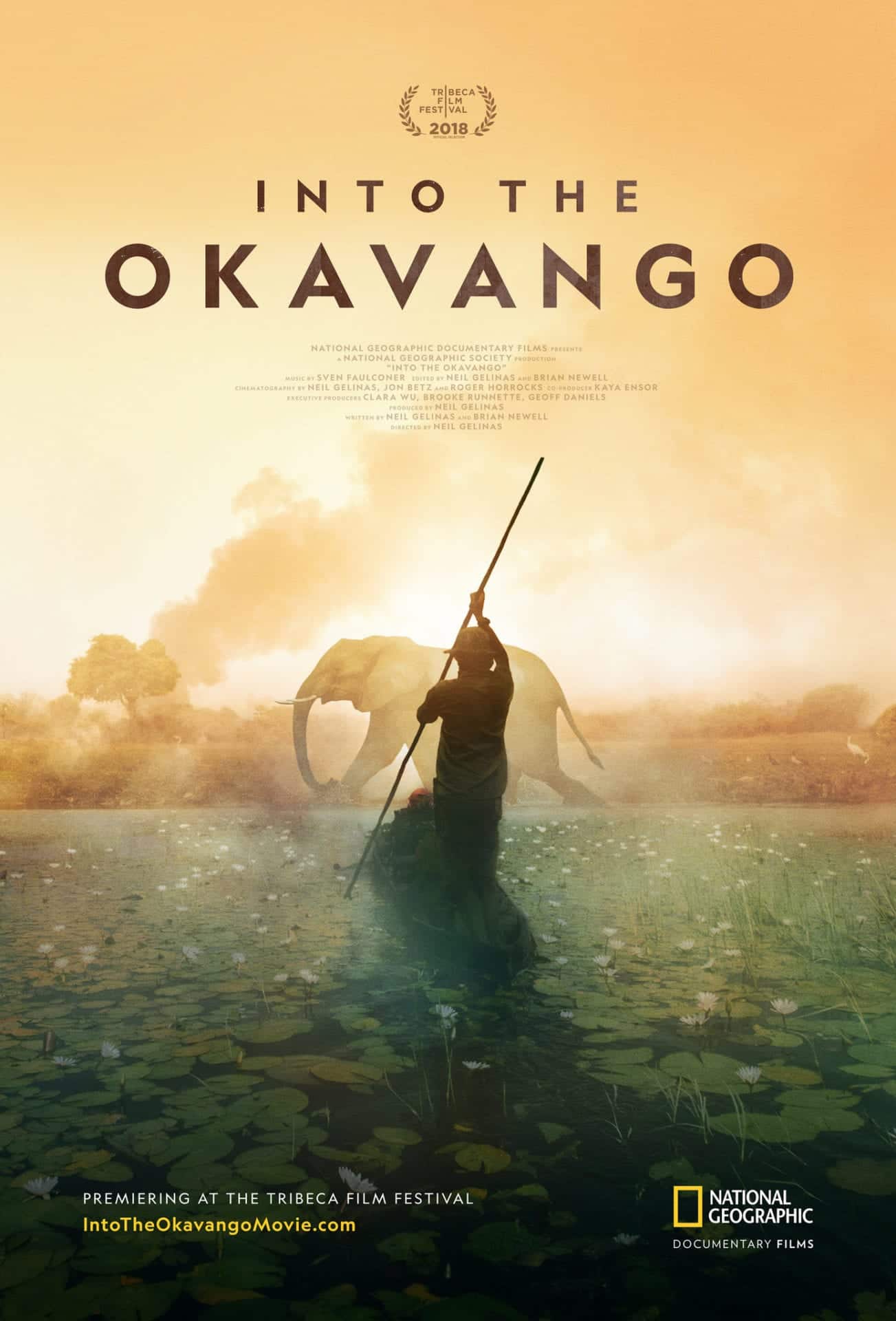Humans have the power to protect and the power to destroy.
The choice is ours.
In National Geographic’s new documentary ‘Into the Okavango’ a choice is made to embark on a very old fashioned kind of Safari. One where the outcome is not assured and the maps contain more legend than intelligence.

On this 1500 mile expedition director Neil Gelinas goes downriver across three countries in search of a happy ending in one of our planet’s last pristine wildernesses.
The show stars a crew of scientists and local river guides… and Africa features large, all the most fearsome character traits on full display and framed as magnificently as you would expect from National Geographic. There are fires and frighteningly belligerent hippos, landmines and the general madness that four months in the middle of nowhere will always conjure.
When I discovered the Okavango Delta — I think I’d been searching for it my entire life. It was this vastness — this incredible unending wilderness. I saw what the world used to be without us. And it is delicate — a delicate thing that we need to protect. Steve Boyes
The person I was when I started this expedition is completely different than the person I was when I left it. I learned to let the ghosts of the past stay in the past. The trip changed all of our molecules. It changed how I see everything, including what it means to be an Angolan.
Adjany Costa
But it isn’t all done in the name of entertainment. Because National Geographic is also running a concurrent fundraising campaign which takes this production from the realm of observation to participation.
It is becoming increasingly clear that we will have to pitch in if we want the final quarter of our planet’s wilderness to survive.
Within these last vestiges of wild places, the Okavango provides a unique insight into what the world was like before humans destroyed most of it.
Gelinas investigates the history of the people at the helm of the expedition as they slowly move across Africa.
Steve Boyes was bullied as a child and turned to nature to become a conservation biologist, Adjany Costa survived a civil war to become an Angolan marine biologist and Tumeletso Setlabosha is an indigenous guide who was born in Jao in the Okavango. There are also cooks, field scientists and of course, the polers who navigate the winding waterways in mekoros. Meet the rest of the team here.
When the water dries up everyone has to pitch in to drag the traditional canoes across blistering earth for over a week.
In the hands of cameramen Jon Betz and Roger Horrocks, the journey is charted and editor/ co-writer Brian Newell and Gelinas ensure that every nuance, emotion, and fear is captured.
Along the way, there are also scientific breakthroughs and discoveries… and losing the water becomes a metaphor for losing our battle for earth’s wildest places.
DIRECTOR
Neil Gelinas
WRITERS
Neil Gelinas Brian Newell
EDITORS
Brian Newell Neil Gelinas
CINEMATOGRAPHY
Neil Gelinas Roger Horrocks Jon Betz
COMPOSER
Sven Faulconer
94 minutes
Available on Amazon Prime and Vudu
and/or
Imagery © GrantRyan – stock.adobe.com, National Geographic


